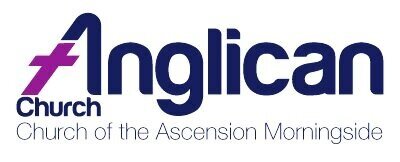In the first article I mention the term ‘Sung Mass’, and I need explain that further.
Many Anglicans who go to church on Sunday, will follow and order of Holy Communion that is in one of three prayers books that form our Australian heritage: 1662 Book of Common Prayer, 1978 An Australian Prayer Book, and 1995 A Prayer Book for Australia. The main service that day would be three to five hymns, with the priest and assistants leading the service. A Sung Mass is different. There will be hymns sung, but the actual order of the service is also sung. That is: the Kyrie, Glory be to God on high, the Creed, Holy, holy, holy, Blessed is he that comes of the Lord, and Jesus Lamb of God. However, it also includes the Collect (Prayer of the Day), the readings, and the final blessing.
This tradition of singing goes back to the time of our Lord and the Apostles. The temple and synagogue services were sung or chanted. The temple had a large choir and musicians of Levites. Singing a service was normal and expected. The word ‘psalm’, comes from the Greek psalmoi, meaning music, as the psalms make clear.
Psalm 81:1-2
Sing aloud unto God our strength: make a joyful noise unto the God of Jacob. Take a psalm, and bring hither the timbrel, the pleasant harp with the psaltery. Blow up the trumpet in the new moon, in the time appointed, on our solemn feast day.
The Letter to the Colossians 3:16, suggests that singing should be a normal part of our personal prayers.
Let the word of Christ dwell in you richly in all wisdom; teaching and admonishing one another in psalms and hymns and spiritual songs, singing with grace in your hearts to the Lord.
For the first Christians, singing was a normal part of community and family worship. Jewish people today, at their family Passover celebrations, sing the key moments of that order of service.
Singing the Mass on Sundays and festivals was a normal practice of the Church. Even at the Reformation, when Archbishop Cranmer published his first Prayer Book in 1549, the music composed for Holy Communion by John Merbecke was also published for ordinary congregations. This set the standard for Anglican sung services. Thomas Tallis also set many other parts of the Prayer Book to music.
So, with this information it becomes clear that not singing the Mass is to be considered unusual.
At Morningside we use the Merbecke setting. In addition, four other parts of the traditional service there are sentences of scripture which are sung to Gregorian chant.
For parishes not singing the Sunday service, there are plenty of modern settings for the newer orders of service.
It is worth finishing with the words of the great Bishop and theologian Saint Augustine of Hippo. ‘The one who sings prays twice’.
And in his greatest work – five volumes of commentary on the Psalms he mentions about Psalm 72: ‘In praise, there is the speaking forth of one confessing; in singing, the affection of one loving.’
